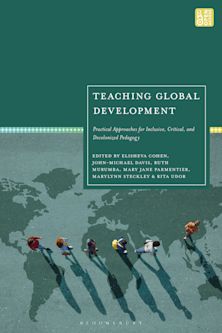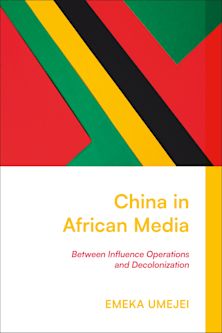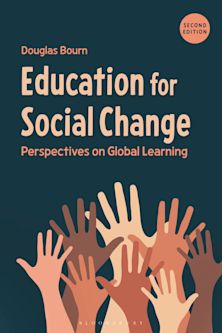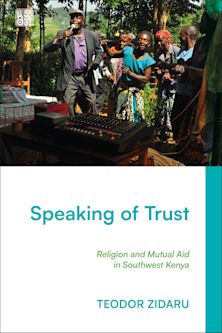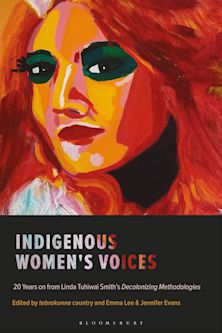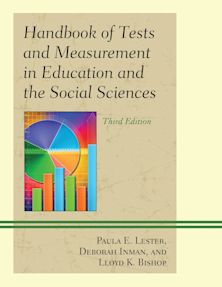- Home
- ACADEMIC
- International Development
- Society, Culture and Development
- Community in the Digital Age
Community in the Digital Age
Philosophy and Practice
Andrew Feenberg (Anthology Editor) , Darin Barney (Anthology Editor) , Phillip E. Agre (Contributor) , Maria Bakardjieva (Contributor) , Bruce Bimber (Contributor) , Albert Borgmann (Contributor) , Hubert Dreyfus (Contributor) , Amitai Etzioni (Contributor) , Andrew Feenberg (Contributor) , Tetsuji Iseda (Contributor) , Diane Elizabeth Johnson (Contributor) , Richard Kahn (Contributor) , Douglas Kellner (Contributor) , Yumiko Nara (Contributor) , Mark Poster (Contributor) , Douglas Schuler (Contributor) , Leslie Regan Shade (Contributor) , Sherry Turkle (Contributor)
Community in the Digital Age
Philosophy and Practice
Andrew Feenberg (Anthology Editor) , Darin Barney (Anthology Editor) , Phillip E. Agre (Contributor) , Maria Bakardjieva (Contributor) , Bruce Bimber (Contributor) , Albert Borgmann (Contributor) , Hubert Dreyfus (Contributor) , Amitai Etzioni (Contributor) , Andrew Feenberg (Contributor) , Tetsuji Iseda (Contributor) , Diane Elizabeth Johnson (Contributor) , Richard Kahn (Contributor) , Douglas Kellner (Contributor) , Yumiko Nara (Contributor) , Mark Poster (Contributor) , Douglas Schuler (Contributor) , Leslie Regan Shade (Contributor) , Sherry Turkle (Contributor)
This product is usually dispatched within 3 days
- Delivery and returns info
-
Free US delivery on orders $35 or over
You must sign in to add this item to your wishlist. Please sign in or create an account
Description
Is the Internet the key to a reinvigorated public life? Or will it fragment society by enabling citizens to associate only with like-minded others? Online community has provided social researchers with insights into our evolving social life. As suburbanization and the breakdown of the extended family and neighborhood isolate individuals more and more, the Internet appears as a possible source for reconnection. Are virtual communities 'real' enough to support the kind of personal commitment and growth we associate with community life, or are they fragile and ultimately unsatisfying substitutes for human interaction? Community in the Digital Age features the latest, most challenging work in an important and fast-changing field, providing a forum for some of the leading North American social scientists and philosophers concerned with the social and political implications of this new technology. Their provocative arguments touch on all sides of the debate surrounding the Internet, community, and democracy.
Table of Contents
Chapter 3 1 Consumers or Citizens? The Online Community Debate
Part 4 Part I: The Question of Community and Digital Technology
Chapter 5 2 The Vanishing Table, or Community in a World That is No World
Chapter 6 3 Is the Internet the Solution to the Problem of Community?
Chapter 7 4 Nihilism on the Information Highway: Anonymity versus commitment in the Present Age
Chapter 8 5 Workers as Cyborgs: Labor and Networked Computers
Chapter 9 6 Our Split Screens
Part 10 Part II Observing Online Communities
Chapter 11 7 Virtual Togetherness: An Everyday Life Perspective
Chapter 12 8 Gender and the Commodification of Community: Women.com and gURL.com
Chapter 13 9 Ethics on the Internet: A Comparative Study of Japan, the United States, and Singapore
Part 14 Part III The Democratic Potential of the Internet
Chapter 15 10 Virtually Democratic: Online Communities and Internet Activism
Chapter 16 11 The Practical Republic: Social Skills and the Progress of Citizenship
Chapter 17 12 On Virtual, Democratic Communities
Chapter 18 13 The Internet and Political Transformation Revisited
Chapter 19 14 Towards Civic Intelligence: Building a New Sociotechnological Infrastructure
Product details
| Published | Jul 19 2004 |
|---|---|
| Format | Paperback |
| Edition | 1st |
| Extent | 336 |
| ISBN | 9780742529595 |
| Imprint | Rowman & Littlefield Publishers |
| Dimensions | 6 x 9 inches |
| Publisher | Bloomsbury Publishing |
About the contributors
Reviews
-
A stimulating contribution from many of the world's leading commentators to the controversies surrounding the social, political, and cultural importance of online community networks.
Brian D. Loader, editor of Information, Communication & Society
-
Community in the Digital Age refreshingly updates and extends the debates about who we are when we are online. Smartly linking offline and online realities and interpretations, the authors of the essays collected here provide us with new and clear understandings of community in the information age. This book may well be considered the harbinger of the next generation of community studies.
Steve Jones, University of Illinois Chicago
-
If it's a philosophical discussion of how community is changing in the digital age that is needed, you need go no further than Andrew Feenberg and Darin Barney's collection Community in the Digital Age: it updates and extends debates about who we are when we're online, discusses differences between online and offline realities, and provides critical assessments of the Internet's relationships to public life. A challenging survey of one of the fastest-changing relationships in modern times, Community in the Digital Age should be required reading.
The Bookwatch












